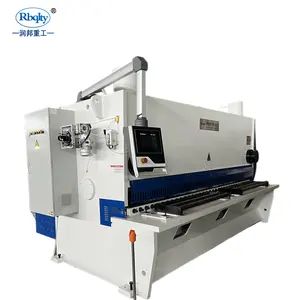
All categories
Featured selections
Trade Assurance
Buyer Central
Help Center
Get the app
Become a supplier









Điều đặc biệt. kéo cắt cnc được cung cấp trên Alibaba.com với các giao dịch hấp dẫn là một cách tuyệt vời để tận hưởng kết quả đáng kinh ngạc trong sản xuất đồ nội thất. Chúng đi kèm với vô số cải tiến và công nghệ tiên tiến giúp tăng hiệu quả. Họ biến việc chế tạo đồ nội thất thành một công việc đơn giản. Các vật liệu mạnh mẽ được áp dụng để sản xuất chúng. kéo cắt cnc làm cho chúng rất mạnh và kéo dài tuổi thọ.
Thật tuyệt vời. kéo cắt cnc có sẵn trên Alibaba.com là một bộ sưu tập linh hoạt ấn tượng chứa vô số mẫu mã, kiểu dáng và kích thước. Bộ sưu tập được chăm chút kỹ lưỡng này đảm bảo rằng mọi người mua sắm đều khám phá ra sản phẩm thích hợp nhất đáp ứng tất cả các yêu cầu chức năng cho doanh nghiệp của họ. Chúng tự hào về các tính năng cắt và nối hiệu quả cao sử dụng lượng năng lượng điện và nhiên liệu vừa phải, cho phép người dùng tiết kiệm chi phí hóa đơn.
Cài đặt các ứng dụng được xếp hạng cao nhất này. kéo cắt cnc rất đơn giản, đặc biệt là khi tuân theo các nguyên tắc của nhà sản xuất. Việc bảo trì chúng cũng đơn giản vì chúng hiếm khi hỏng hóc và các bộ phận của chúng dễ sửa chữa khi cần thay thế. Bởi vì chúng dễ làm sạch, bụi và các hạt khác không tích tụ một cách không cần thiết đến mức có thể ảnh hưởng đến hoạt động của chúng. Các thiết bị này rất an toàn khi vận hành vì chúng đi kèm với các tính năng an toàn tiên tiến giúp bảo vệ tối đa cho người vận hành.
Bằng cách điều hướng qua Alibaba.com, người mua sắm sẽ thấy rất thú vị. kéo cắt cnc các tùy chọn để đưa hoạt động của họ lên cấp độ tiếp theo. Mua sắm từ trang web rất bổ ích vì người mua nhận được các mặt hàng chất lượng trong danh mục này đáp ứng hoặc vượt qua mong đợi của họ. Loại này phù hợp cho cả sản xuất đồ nội thất quy mô nhỏ và quy mô lớn, đòi hỏi hiệu quả tối đa.